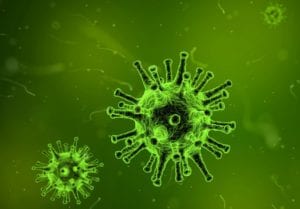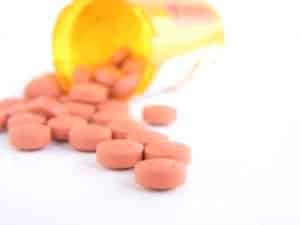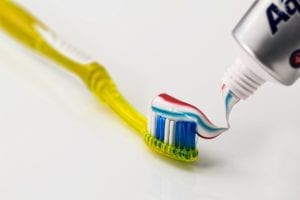
Whether you’re going in for a routine dental checkup and cleaning or need a more urgent visit to address an oral health problem, it’s important to be aware of ways to avoid infection. For the majority of dental visits and patients, infection is avoidable with simple precautions. Let’s explore.
Bacteria Basics
Our mouths are home to hundreds of types of microorganisms and tiny bacteria. Most cause no problems at all and are easily taken care of with good oral hygiene. Some bacteria protect our teeth and gums and others, like probiotics that help with digestion.
The bacteria Streptococcus mutans, sometimes referred to as ‘strep,’ regularly live in the mouth. Strep survives on the starches and sugars we eat. It produces acids and is the main cause of tooth decay or cavities. Another bacteria, porphyromonas gingivalis, are not common but, when present, are often associated with periodontitis or gum disease.
Preventative Antibiotics
 Given we have bacteria in our mouths, should antibiotics be taken before a dental visit?
Given we have bacteria in our mouths, should antibiotics be taken before a dental visit?
According to the American Dental Association (ADA), there are only a few types of patients that should consider antibiotic prophylaxis (taking antibiotics before a dental cleaning or extraction).
- Heart patients Most of us have minimal risk of getting an infection of the heart (also known as infective endocarditis) from a dental procedure. Even for patients with some heart conditions, taking antibiotics in advance is not necessary. There are other patients, however, that are at a higher risk of developing or having an adverse reaction from an infection of the heart. Patients with an artificial heart valve, heart transplant where there were problems with the valve, certain heart defects, or previous infection should discuss preventative antibiotic treatment with their physician before having dental treatment.
- Joint surgery patients For patients that have had a hip, knee or other joint replacement, antibiotics before a dental visit may be necessary. To determine if antibiotic prophylaxis is right for you, consult your orthopedic surgeon.
Avoiding Infection
 So how can patients without these specific conditions avoid unnecessary antibiotics? Simple steps for good oral hygiene should keep patients free from the risk of infection!
So how can patients without these specific conditions avoid unnecessary antibiotics? Simple steps for good oral hygiene should keep patients free from the risk of infection!
- Gentle brushing: After a checkup or procedure, it’s important to keep your teeth and mouth clean. Food and other particles can settle on and in between the teeth and promote bacteria growth. For extractions, avoid the site where the tooth/teeth were removed but continue gently brushing all other teeth. To remove food at the extraction site, rinse gently and regularly throughout the day until your dentist advises you can resume regular brushing. Following a checkup and cleaning at the dentist, continue with good oral health practices! Brush all of your teeth, twice each day for two minutes each time. Be sure to floss every day to remove remaining particles that can promote the growth of bacteria.
- Salt water rinsing: Did you know that salt water temporarily raises the pH in the mouth to create an environment that discourages bacteria growth? Get into the habit of rinsing with a simple salt-water solution after your dental visit! Add a half teaspoon of salt to one cup of warm water for the salt water rinse. For extractions, rinse every couple of hours and after each meal for a week. For regular dental checkups, simply rinse with the salt-water solution after each meal for a day or two. Rinse gently; the salt-water solution will take care of the rest.
- Hands off: It is good general hygiene to wash your hands throughout the day to avoid infection. With warm or cold water, use soap and lather well. Rub hands well together for about 20-30 seconds and rinse well. Dry hands off with an air dryer or disposable towel. Keep your hands away from your face and mouth! Also, avoid putting foreign objects into your mouth, such as a pen or pencil. Ensuring your hands, fingers, and other objects aren’t in your mouth will lessen the chance of getting an infection.
If you’re unsure about how you and your family can avoid antibiotics, talk to us! Our team of expert dentists and dental hygienists understand your concerns and can guide you on tips to maintain a healthy, beautiful smile.
